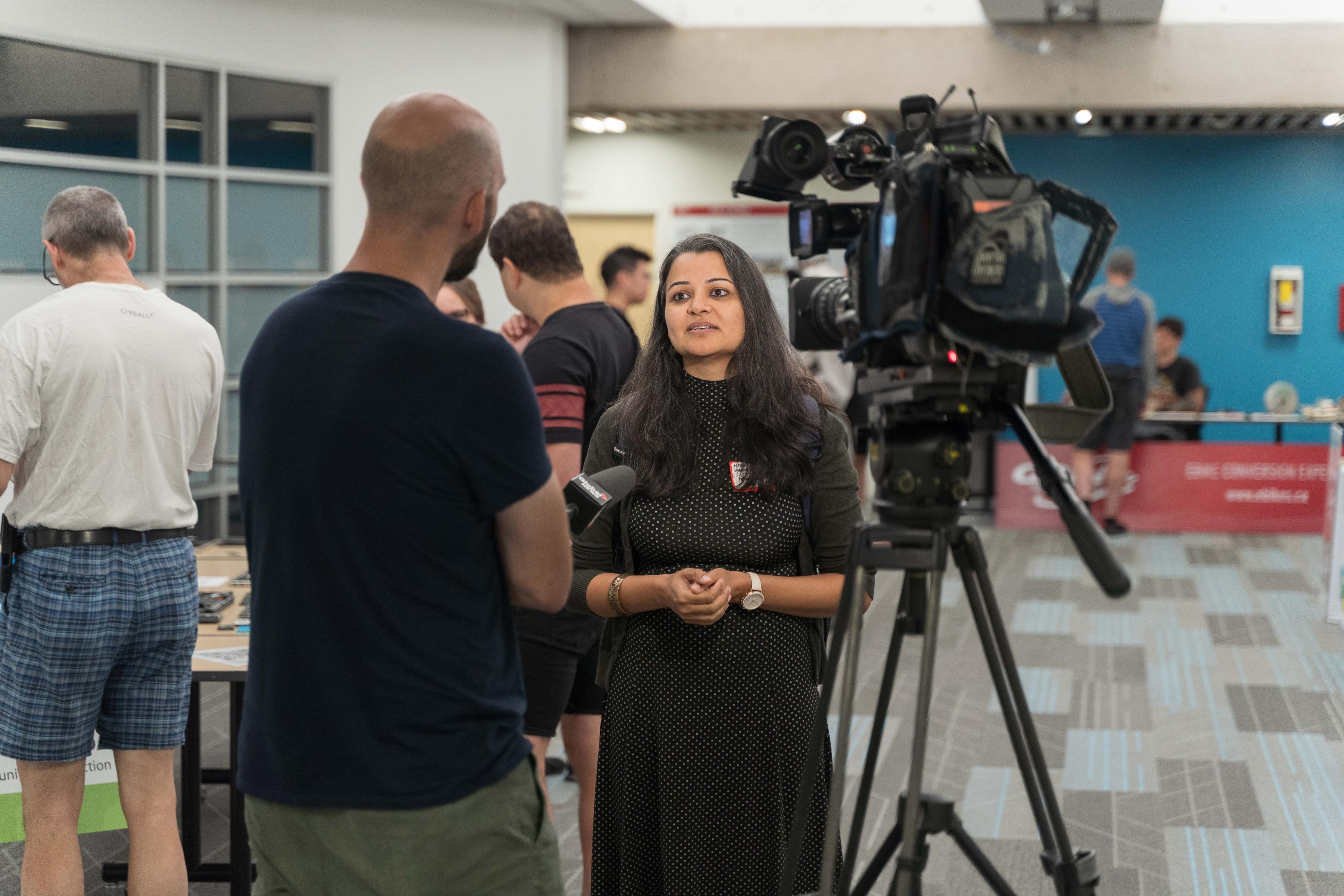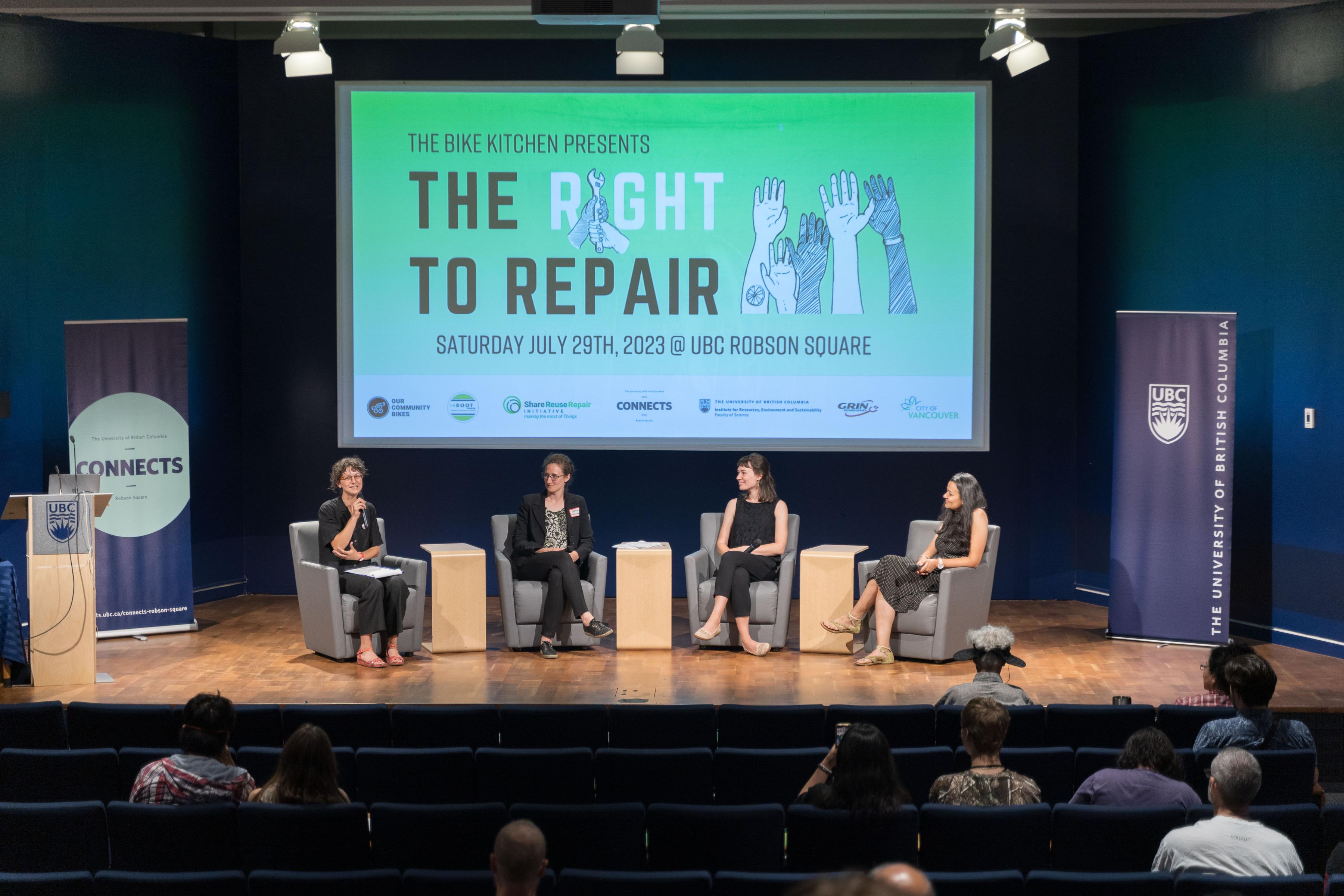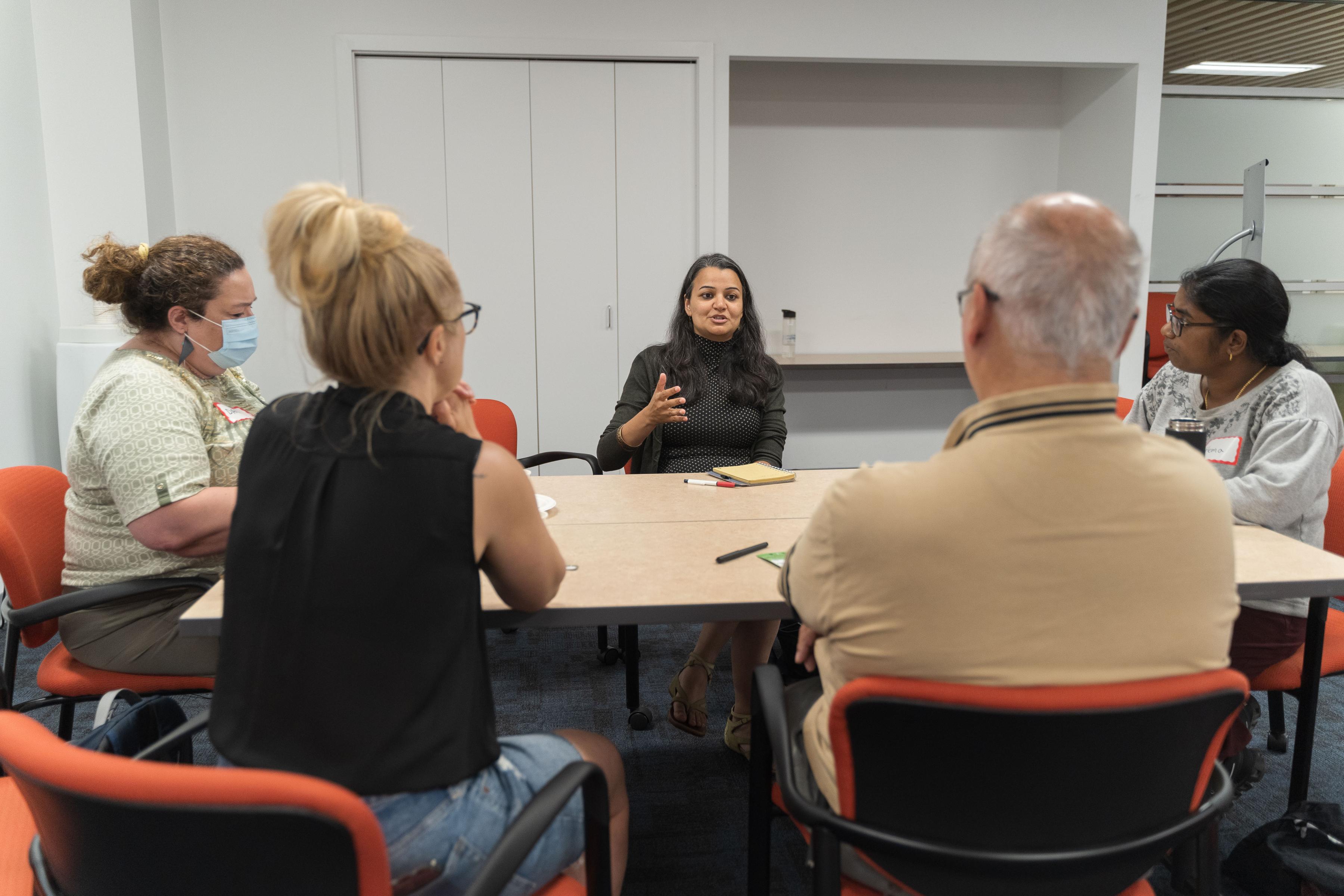Neha Sharma-Mascarenhas
For me, the purpose of this degree was to broaden my skill set, empowering me to lead action-oriented research, while also enhancing methodological rigor inherent in a PhD. What mattered most to me was the opportunity to engage in applied research, tackling real-world issues in the field and driving tangible policy change.
Research description
My doctoral research aims to investigate the role of electronics repair and reuse as effective waste prevention strategies within a ‘zero waste’ and ‘circular economy’ context. In policy, academia, and media discourse, there is a strong emphasis on recycling as the primary solution for addressing the growing e-waste problem. However, growing evidence suggests that recycling, although important in its own right, has had limited overall impact on the problem of e-waste management, since only a small proportion of the initial resources can be extracted due to the high costs and complexities involved in recycling processes. Furthermore, in the case of complex electronics, the bulk of environmental and socio-ecological harm occurs during the initial extraction of critical and rare raw materials, and in the manufacturing stages. Within circular economy literature, the most neglected of the 3Rs of Reduce, Reuse, and Recycle, is ‘reuse’ (and its associated aspect of ‘repair’), about which few strategies and policies have been conceived or adopted. In fact, in recent years we have witnessed a systematic dismantling of the repair economy in high-income countries, fuelled by a number of factors. On the industrial side, practices such as built-in obsolescence, phasing out spare parts, and using brand-specific components with trademark restrictions have impacted the ability to repair. On the consumers' side, there is a diminished incentive to repair due to the abundant availability of an avalanche of cheap products; and repair conjuring vastly different associations from constituting a strategy of coping with poverty, to a symbol of status associated with ‘green’ behaviour. These factors, coupled with an absence of government regulation on industrial practices, have led to several movements across the globe advocating for the revival of repair. My research unpacks these socio-economic, policy, and industrial dynamics that mediate repair and reuse in an economy using a mix of quantitative and qualitative methodologies.
What does being a Public Scholar mean?
Being recognized as a UBC Public Scholar holds immense significance to me. I started my PhD journey after over a decade of experience in policy research and data analytics. For me, the purpose of this degree was to broaden my skill set, empowering me to lead action-oriented research, while also enhancing methodological rigor inherent in a PhD. What mattered most to me was the opportunity to engage in applied research, tackling real-world issues in the field and driving tangible policy change. Being situated in a department like IRES, that emphasizes impact-oriented and problem-focused research, aligned seamlessly with my objectives. Now, this support and validation of my work from Public Scholars Initiative further bolsters the possibility of making a meaningful impact, within and beyond academia. As a Public Scholar, I aim to use my research to inform changes in governance and policy of end-of-life electronics by developing connections with practitioners, government bodies and policymakers, and organizations working in this space. Yet, being a Public Scholar carries a deeper significance than individual success: it also means belonging to a community of inspiring peers who share a common commitment to translating and communicating academic research to a wider audience.
In what ways do you think the PhD experience can be re-imagined with this Initiative?
The knowledge generated through a PhD dissertation often remains inaccessible to a wider audience, including time-constrained policymakers, organizations, and the general public — the primary audiences policy-oriented research aims to engage and inform. However, effective knowledge translation and dissemination often lies beyond the traditional scope of a PhD, and the academic pressures of graduate school rarely allow students to prioritize this crucial aspect. The Public Scholars Initiative could play a pivotal role by providing resources, training, and funding to facilitate knowledge translation and enable broader sharing of research findings.
How do you envision connecting your PhD work with broader career possibilities?
Extensive work experience has taught me that potentially effective policy ideas often face challenges during implementation. Developing a critical eye to unpack these challenges and measuring impact are just as crucial as the research idea. With this in mind, I was looking for a doctoral program that focused on impact-oriented research to solve real-world problems, and allowed one to apply a lens broader than any one restrictive discipline while doing so. The Institute for Resources, Environment, and Sustainability (IRES) promised to be exactly what I was looking for, and has proved to be so much more than that for me. The vast knowledge, perspectives, and experiences of the IRES peers and faculty, and the larger UBC community have been inspiring. I have also had the opportunity to be involved in several local policy analyses projects within the Metro Vancouver region across circular economy, sustainable transportation and the larger climate change mitigation technologies space that have provided an in-depth understanding of the Canadian regulatory landscape as well. These experiences, coupled with the invaluable research and soft skills cultivated during my doctoral journey, have equipped me with a versatile skill set. I believe that these experiences and networks will position me well to transition to leadership roles in the larger sustainability and analytics fields beyond academia as well.
How does your research engage with the larger community and social partners?
Elements of my research that form public scholarship have been developed with a deliberate effort to construct a policy-relevant and contextualized, local research question drawing from a series of informal interviews within the field. As the research progresses, one central goal will be to transform the insights and recommendations into accessible policy resources that are widely available as an actionable toolset to solve the electronic waste management challenge in Canada. I hope to continue to engage with my partner organizations and the larger community through creation and presentations of audience-appropriate policy briefs that succinctly summarize and provide pathways to provincial and city-wide action.
Why did you decide to pursue a graduate degree?
I have formal training in economics and have worked at the nexus of economic and public policy research and data analytics for over a decade. My last research engagement with the World Resources Institute had a pivotal role in reinforcing my belief that action-oriented research can inform changes in policy and governance to solve real-world problems. It also became apparent that these problems do not follow any disciplinary boundaries, and often need a diverse set of research toolboxes. I felt that an interdisciplinary PhD degree would provide me the rigorous training to contribute to these policy issues effectively through a broader perspective. I was also aware that research and policy formulation does not happen in isolation from the community and the local context. I was looking for an opportunity to understand the socio-economic and policy context in Canada through collaborations within and outside of academia. I specifically sought a PhD program that would allow me to develop a suite of analytical and research skills; develop partnerships with government, community, and research organizations; and in the process of learning and working on issues that I feel passionate about, in an intellectually stimulating environment.
Why did you choose to come to British Columbia and study at UBC?
There are several reasons for this: Firstly, UBC is among the leading universities in the field of environment and sustainability research. Secondly, my program at UBC offers exactly what I was looking for in a PhD program and provides opportunities for folks looking at making tangible change through rigorous academic research. Thirdly, as a sustainability researcher, the prospect of living in a city and campus that have progressive sustainability mandates and operate like a living laboratory for climate action, is inspiring! Finally, I was looking for a university that would provide a supportive environment and ecosystem to pursue my studies while raising a young family at the same time. UBC is among the few universities that provided both: the physical and social infrastructure to enable this.
What is it specifically that your program offers that attracted you?
A decade of work experience had taught me that potentially effective policy ideas often face challenges during implementation. Developing a critical eye to unpack these challenges and measuring impact are just as crucial as the research idea. With this in mind, I was looking for a doctoral program that focuses on impact-oriented and problem-focussed research to solve real-world issues, and allows one to apply a lens broader than any one restrictive discipline while doing so. The Institute for Resources, Environment, and Sustainability (IRES) promised to be exactly what I was looking for, and has proved to be so much more than that for me. The vast knowledge, perspectives, and experiences of the IRES peers and faculty have been overwhelming and inspiring.
For you, what was the best surprise about graduate life, about UBC or life in Vancouver?
I was pleasantly surprised by the incredible support and encouragement provided by the IRES and UBC community, something that I had not initially expected. Vancouver is a multicultural and beautiful city surrounded by the ocean and mountains, filled with forest trails and parks. Though for me, the biggest surprise was how green (literally, not only environmentally or politically) Vancouver is – the diverse range of trees in the city look grand in their different avatars through the four seasons!
What aspect of your graduate program do you enjoy the most or are looking forward to with the greatest curiosity?
Learning and growing within a community of diverse, highly motivated, and intellectually stimulated people working in a collaborative environment that extends beyond academia!
What aspects of your life or career before now have best prepared you for your UBC graduate program?
I worked for over a decade before starting my PhD degree. This has prepared me well for the rigour of graduate school, has allowed me to have a broader perspective to research, and nudged me to intentionally seek a study/work-life balance. Functionally, aside from project management and working in diverse collaborative environments; my work experience also helped me develop statistical, research and software skills that are proving to be useful during my doctoral research too.
What do you like to do for fun or relaxation?
I have enjoyed exploring the trails, beaches, and parks in the city with my family, and I cherish and love my time with my daughters at home playing or painting.
What advice do you have for new graduate students?
Graduate school may seem daunting initially but give yourself some time and ask for support when you need it. Most of us are usually facing the same challenges; and peers, faculty and staff are more willing to help than we think. These relationships are valuable, not only in academic pursuits, but in and of themselves; and will be a part of your life far past your graduate school years.







